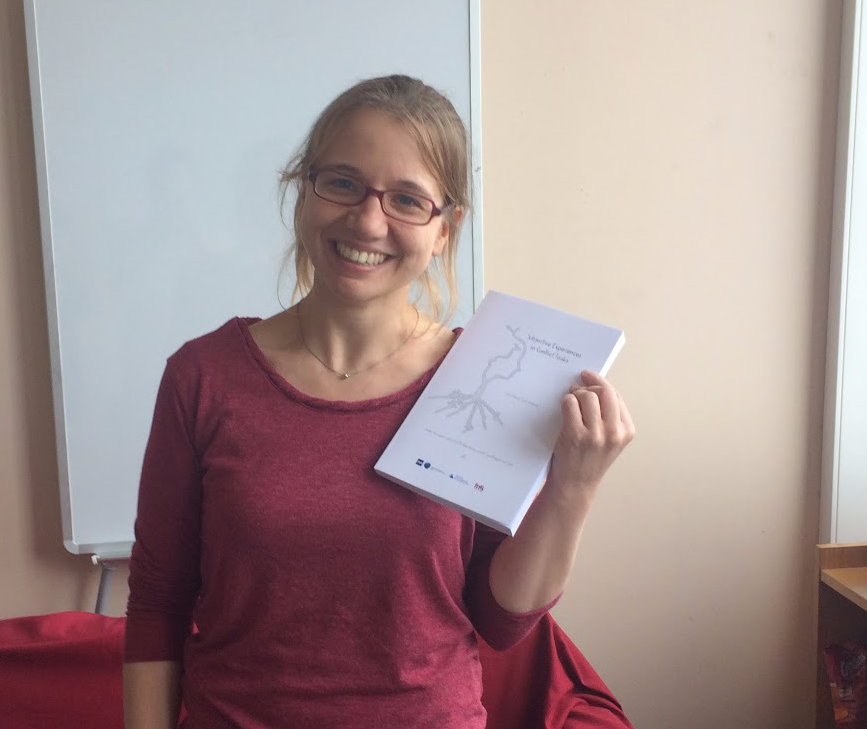
|
|
|
About Laurence's work
Laurence's PhD abstract
While performing a task, we feel cognitive and affective conscious experiences that we can subjectively evaluate. For instance, we can feel that we perform well or badly, or that the task is easy or difficult, etc. These subjective experiences could have an influence on behavioural adaptation. In the current thesis, we aimed to understand how these experiences emerge and how they are related to behavioural adaptation. In a first experimental study (Questienne, Van Opstal, van Dijck, & Gevers, 2017), we investigated, in the context of a conflict task, the relationship between the experience of conflict and the Gratton effect. This effect is considered as a hallmark of cognitive control. We replicated and generalised previous results (Desender, Van Opstal & Van den Bussche, 2014) that showed that metacognitive experiences of conflict are related to the Gratton effect. In the second study (Questienne, van Dijck, & Gevers, 2017), we demonstrated that people are able to focus on highly specific aspects of their phenomenal experience (i.e., visual vs. motorconflict) that are usually confounded in conflict tasks. In the third and the fourth experimental study of the thesis, we focused on the experience of “urge-to-err”, i.e., the subjective feeling that one is about to make an error, even if the final response is correct. Using electromyography, we showed that this experience is highly determined by features of motor performance. We also demonstrated that subjective experiences of the urge-to-err result from several features that can be objectified and disentangled (Questienne, Atas, Burle, & Gevers, 2018). Finally, we studied the temporal dynamics of the experience of urge-to-err by analysing the electroencephalographic markers that relate to judgements of urge-to-err. Results show that these judgements are rather blind to pre-response processing, and are mainly supported by tardive processes related to response evaluation (Questienne, Burle,& Gevers, in prep). In sum, through different studies using behavioural, electromyographic and electroencephalographic measures, the current thesis discloses the building blocks of metacognitive experiences in the context of conflict task and uncover their mechanisms. This work also contributes to a better understanding of the relationship between subjective experiences and behavioural adaptation.
|


